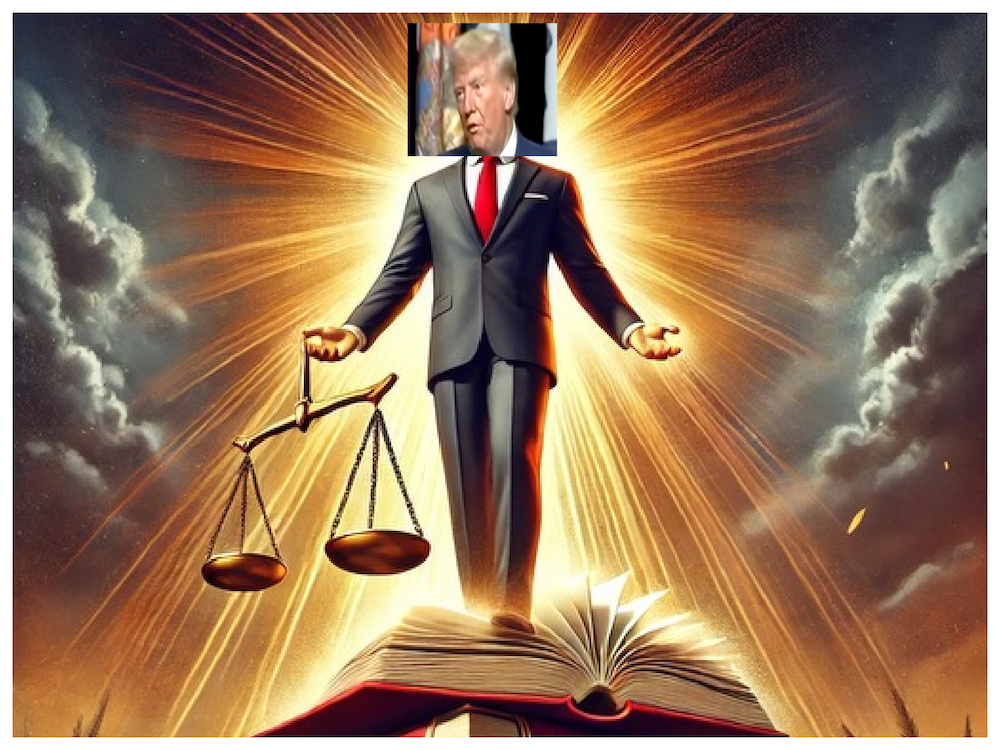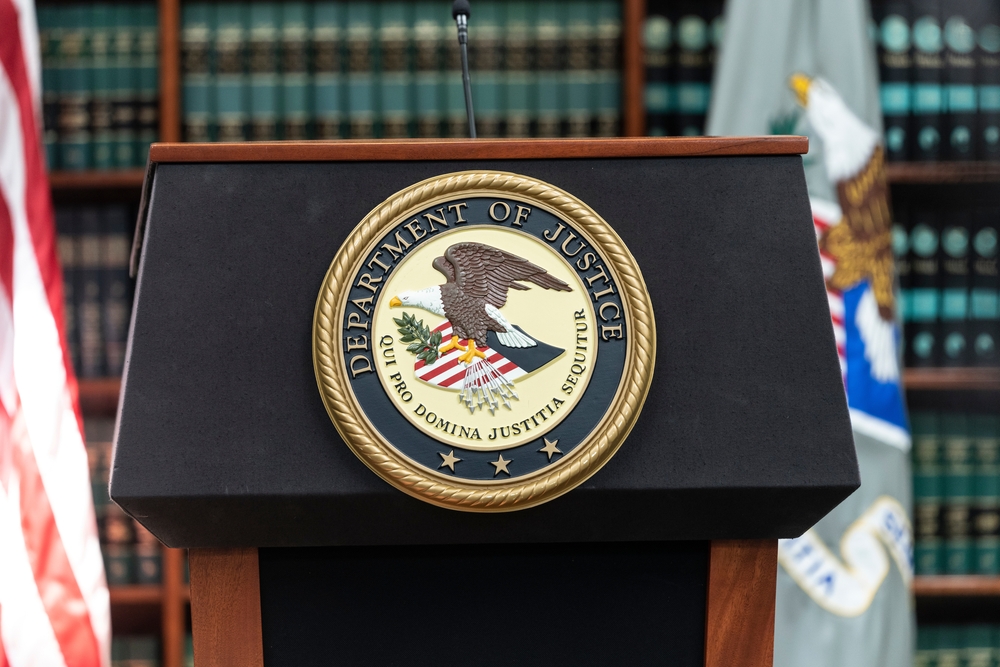The ticklethewire.com columnist was an FBI agent for 31 years and retired as resident agent in charge of the Ann Arbor office in 2006. He has a law degree from the University of Nebraska College of Law.
By Greg Stejskal

As an attorney and having been an FBI agent for over 30 years, I have taken a keen interest in former president and now president-elect Donald Trump’s legal travails. Following Trump’s New York state conviction on 34 felony counts involving election fraud, I had some trepidation awaiting the decision of the U.S. Supreme Court regarding presidential immunity stemming from the January 6th indictment.
The Court decided that the president had absolute immunity for any official acts, i.e., acts within his “core Constitutional purview.” Further, the Court said that there was a presumption that there was immunity for acts within the “outer perimeter” of the president’s official responsibility nor could official acts be used as evidence of motive in proving unofficial criminal acts. Although it is yet to be tested, it would seem the threshold of proving that criminal acts are not official is almost insurmountably high.
Article II of the Constitution which defines the official duties of the president makes no mention of immunity, and for the 236-year life of the Constitution there doesn’t seem to have been the need for presidential immunity. But the Supreme Court at this juncture decided there was a need for a doctrine of presidential immunity.
In English common law there was a doctrine of sovereign immunity based on the concept that the king could do no wrong. The authors of the Constitution wanted to form a strong central government. But having successfully revolted against a monarchy, they wanted to put limits on the power of the government. They defined the three branches of government: the legislative, the executive and the judicial. Each had unique powers and could act as a check and balance on the others. The president who would oversee the executive branch would not be a king. The bedrock principle of this Constitutional government would be no man (person) is above the law.
Supreme Court’s Impact
It is unclear whether the Supreme Court’s decision would have made the prosecution of Trump’s efforts to overturn the 2020 election impossible. It did ensure that there would be no trial until after the 2024 presidential election.
When Trump won the election, the immunity issue became moot as it is presumed that Trump will order his attorney general to dismiss the January 6th indictment. The Mar-a-Lago documents case had already been dismissed by the presiding judge. That dismissal was appealed by the Special Counsel Jack Smith. Although that appeal had a high probability of success, Trump’s attorney general presumably will not pursue that appeal further.
Only one case remains viable, the Georgia state Racketeer Influenced Corrupt Organization (RICO) prosecution of Trump and his alleged conspirators and their efforts to change the results the 2020 presidential election in Georgia. That case would also have to overcome the immunity defense of Trump. However, the prosecution could proceed if the charges against Trump were dismissed, and the other defendants were prosecuted. (Trump could continue to be named in the indictment as an unindicted coconspirator.) This would allow evidence of the conspiracy and Trump’s involvement to be made public.
So in fact, at least one person is above the law. A person who allegedly instigated a multi-faceted conspiracy to overturn a free and fair election which culminated in an insurrection and deprived the country of a peaceful transfer of power for the first time in our history.
Beyond Trump not being held responsible for his alleged criminal acts, of maybe greater concern is the prospect of Trump returning to the presidency with an avowed mission of retribution. He will now be shielded by the Supreme Court’s seminal doctrine of presidential immunity and continue to be armed with the power to pardon anyone who might act criminally at his behest. He could orchestrate criminal acts cloaked in the garb of official acts.
In light of the nomination of Matt Gaetz as attorney general, there is reason to believe that Trump intends to carry out his retribution. Although Gaetz would seem to lack the legal gravitas and administrative experience to be an effective attorney general, he still poses a serious threat to Trump’s and his perceived enemies. Gaetz has been severely critical of the Department of Justice and called for the elimination of the FBI. In an apparent projection, he has claimed that the DOJ has been weaponized against Trump and his allies. Gaetz will try to actually weaponize the DOJ against the “enemies from within” and the “Deep State.” Trump’s cudgel of retribution.
Abe Lincoln’s Lecture
In 1838, Abraham Lincoln gave a lecture to the Springfield, Illinois, Lyceum, a group that provided public lectures. Lincoln’s lecture was titled “The Perpetuation of Our Political Institutions.” Lincoln warned that the greatest threat to our republic would come from within. Mobs led by an ambitious man who disrespected US laws and courts could destroy the republic. Our protection would be the Constitution and the rule of law. The conclusion of that lecture:
“I do not mean to say, that the scenes of the revolution are now or ever will be entirely forgotten; but that like everything else, they must fade upon the memory of the world, and grow more and more dim by the lapse of time.
‘They were the pillars of the temple of liberty; and now, that they have crumbled away, that temple must fall, unless we, their descendants, supply their places with other pillars, hewn from the solid quarry of sober reason. Passion has helped us; but can do so no more. It will in future be our enemy. Reason, cold, calculating, unimpassioned reason, must furnish all the materials for our future support and defence.–Let those materials be moulded into general intelligence, sound morality, and in particular, a reverence for the constitution and laws: and, that we improved to the last; that we remained free to the last; that we revered his name to the last; that, during his long sleep, we permitted no hostile foot to pass over or desecrate his resting place; shall be that which to learn the last trump shall awaken our WASHINGTON.”
Lincoln’s speech was prescient in foreseeing the threat to the Union from within that he would face as president in 1861, but it is also relevant to the threat we face today.
During the Civil War, Confederate traitors who fought to destroy the Union tried in vain to seize the U.S. Capitol and raise their flag over it. On January 6th, the Confederate battle flag was displayed in the Capitol rotunda by insurrectionists incited by then President Trump. (The original plan for the Capitoll was to have Washington’s tomb beneath the rotunda.)





